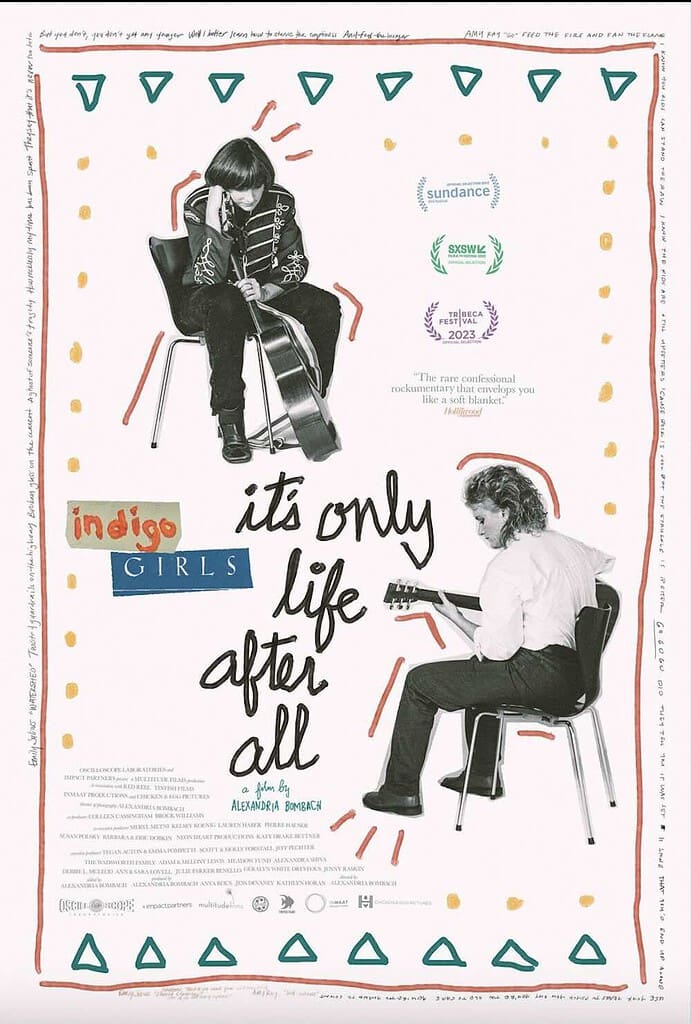Indigo Girls: It’s Only Life After All is a documentary as unique as the Indigo Girls themselves. It uses lots of saved movies and photos belonging to the Indigo Girls as well as interviews and concert footage to tell the story of their career and growth as musicians and as people.
Indigo Girls: It’s Only Life After All, directed by Alexandria Bombach, has an edgy feel that totally befits the life and history of the Indigo Girls. Amy Ray and Emily Saliers tell their story with open honesty. Their progress through life is a reflection of the progress of American culture and history.

The sexism and homophobia of the larger culture impacted their careers in a big way. They talk about what that meant to them as a band and as individuals with private lives. Their treatment by the media was an important part of that.
They consider themselves not just musicians but activists as well. There was a lot of information about how they developed as activists, how they found their causes and what they do to support them.
Both of them were willing to talk about being closeted, coming out, sexuality and gender.
The film covers their lives from when they met in middle school – two girls who played guitar – through all the ups and downs they experienced. There was always music, concerts, practice sessions, and sound behind every scene. Things flashed by during interviews and conversations showing them singing, writing, and performing alone or together.
Amy was the one taking movies and photos of everything. She saved cassette recordings and VHS recordings. She saved plenty of photos and snapshots. She has a whole library of Indigo Girls history in her house. Director Alexandria Bombach made good use of it.
I was lucky enough to see them two different times in live performances. I always loved their music and their sound. If you’re a fan, I guarantee you’ll enjoy this documentary. It’s streaming on Netflix.

Leave a Reply